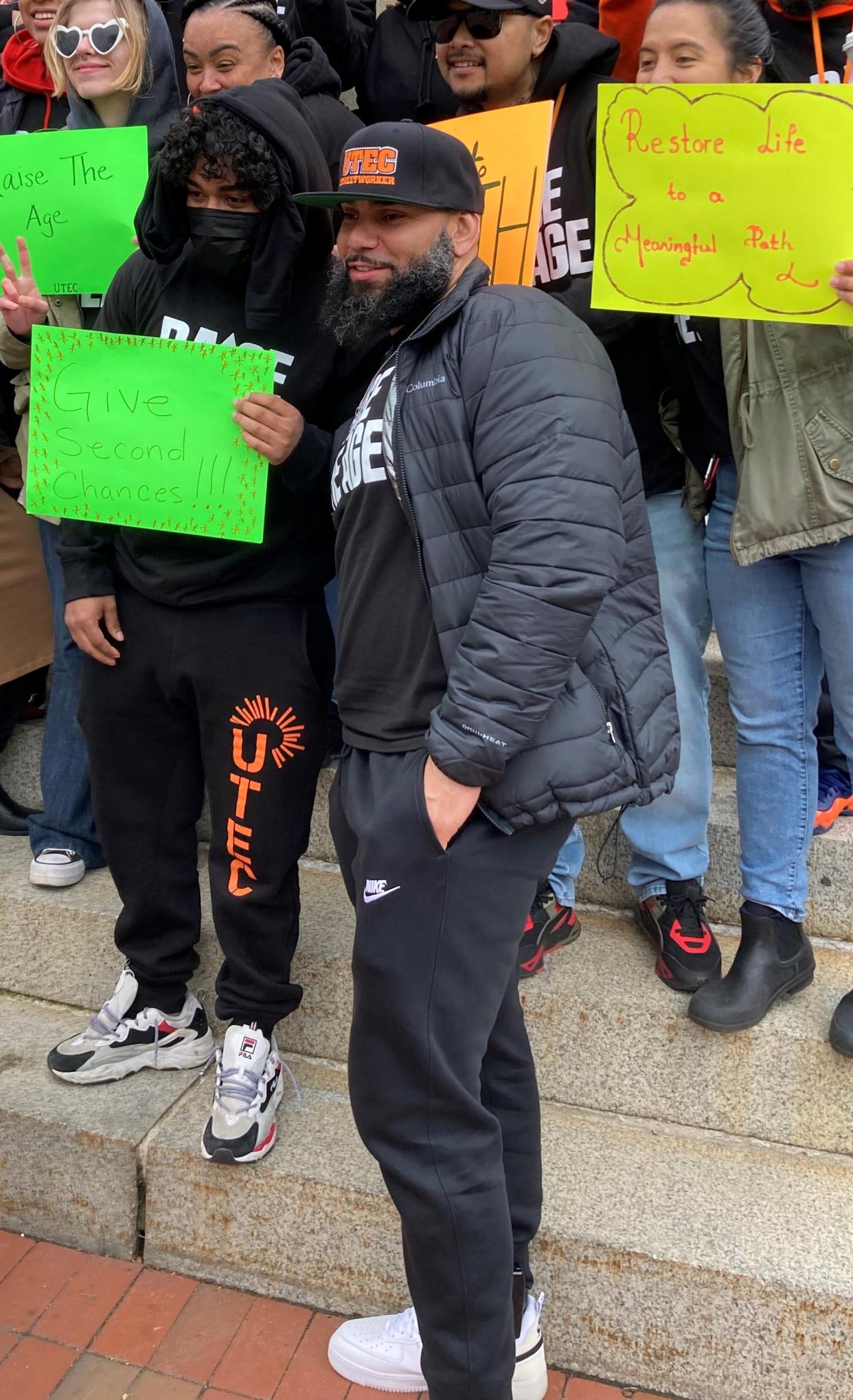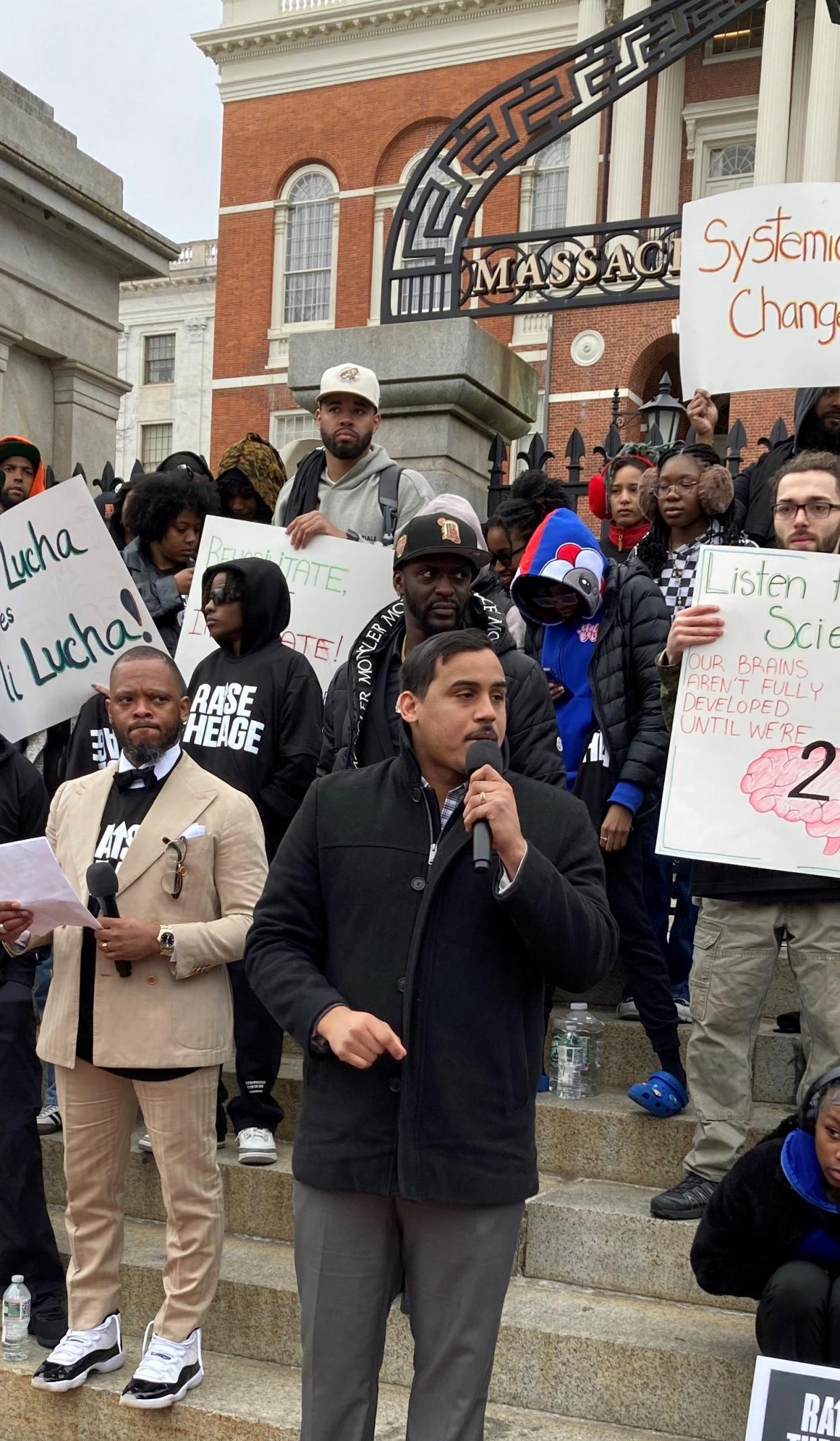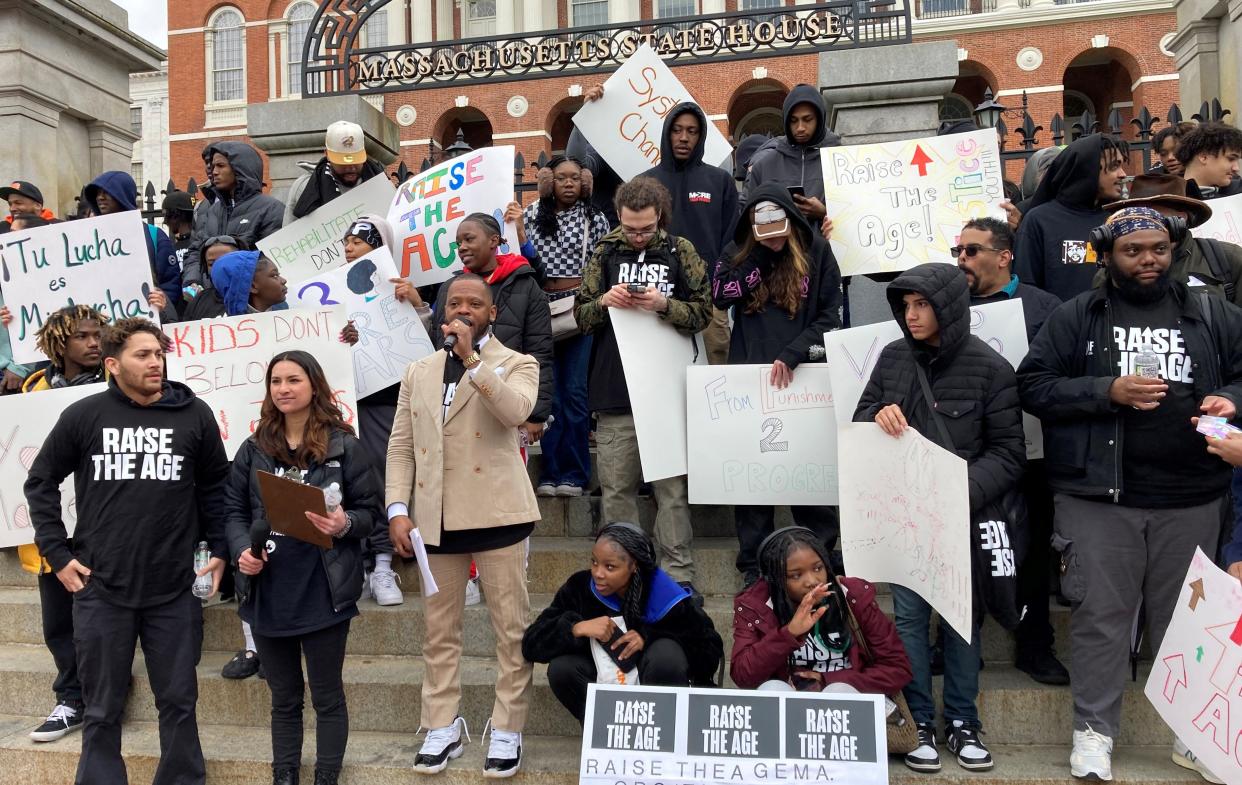Advocates: Extend juvenile justice system past teen years include offenders to age 20
BOSTON — In the photos that ran in the Telegram & Gazette in 2006, Charles Rosario, then 21, stands, head hanging, listening as his future life is decided by a judge after he pleaded guilty to second-degree murder in the death of Nathan Watkins in Worcester.

Sentenced to life in prison with the possibility of parole, Rosario served 12 years before being released in 2022, judged suitable for parole by the state. It was the second time he appeared before the board; he had been denied in 2019.
That experience of barely being an adult in an adult correctional facility has led him to become an advocate for young adults involved with the criminal justice system. Rosario is a vocal supporter of the move to increase the age at which young offenders are adjudicated through the juvenile system.
Rosario, affiliated with UTEC, an organization that helps youth overcome the challenges of poverty, gang involvement and unemployment, joined dozens of activists and supporters attending a rally at the State House Thursday in support of companion bills.
Filed by Reps. James O’Day, D-West Boylston, and Manny Cruz, D-Salem, and Sen. Brendan Crighton, D-Lynn, the measures are still in committee. They would raise the age of young adults adjudicated through the juvenile system to 20.

“Kids are still trying to figure it out in a world that is not as friendly to them as it should be,” Rosario said. “We need to invest in our kids, not arrest them. We can’t lock them up for life, throw them away.”
Supporters of the measure cite brain science and research that shows young adult brains continue to develop until age 25. Young adults have the capacity for change and rehabilitation.
Activists with More Than Words, an empowerment group serving youngsters in foster care, those who are court involved or homeless, suggest the state “create as many off-ramps as possible and alternative strategies to move young adults out of the adult justice system” and into an environment that offers more structure, education and supports.
“I know the difference between what the adult system does to people and what the juvenile justice environment has to offer,” Rosario said, explaining that the system for youth offers educational opportunities and supports.
Speaking at the rally, Cruz said that as a Latino youth, he was always one mistake away from becoming involved in the criminal justice system but that his friends, teammates and even family members were not so lucky.
“I know people say, ‘What about the victims of violent crimes?’,” Cruz said, acknowledging that the risky behavior exhibited by young adults can harm others and inflict pain and sorrow on families, friends and survivors of violence. “I say, What about the victims of the system designed to criminalize and incarcerate Black and brown people?”
In discussing the bill, Cruz suggested the state’s Department of Youth Services include young adults through their age of “criminal majority" in the juvenile justice system.
“It has the capacity and is already serving youngsters,” Cruz said, suggesting that teenagers through age 20 be enfolded.
“Every single young person deserves a chance,” Cruz said.
Rosario embodies the activists’ claim that youthful offenders can be rehabilitated. In his second appearance before the state Parole Board in 2022, the body cited his “extraordinary investment in his rehabilitation and adjustment” as a motivating factor in his release.

Rosario was involved with Restorative Justice, took college courses, became a mentor of young inmates within the Building Responsible Adults through Validation and Education Unit and attended AA/NA meetings. The BRAVE Unit is housed at MCI-Concord and is designed to counsel and support young, incarcerated men ages 18-26 who are also fathers. Launched in August 2021, BRAVE was modeled after a similar program in Norway.
The Massachusetts Executive Office of Public Safety and Security also cites brain science. Research on neurological development shows the prefrontal cortex, in charge of executive function, does not develop fully until age 25.
Lawmakers have until the end of the month to decide whether to vote the measure out of committee or send it to study.
James Mackey of More Than Words urged people at the rally to call their legislators and urge its passage.
“Our young people can’t afford to wait another two years for the Legislature to raise the age,” Mackey said.
This article originally appeared on Telegram & Gazette: Advocates at Massachusetts State House push juvenile justice bills
